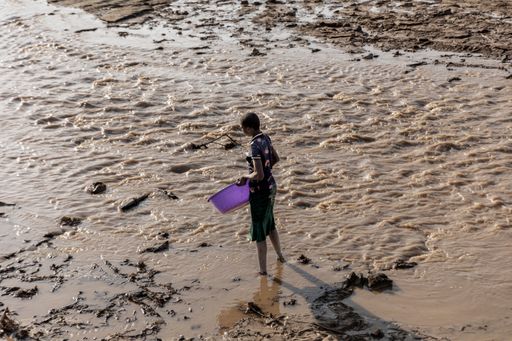Ida Flore Maroundou learnt early in life that a home may not always be the safe sanctuary one assumes it would be.
"Growing up in Port-Gentil, I was a victim of violence in my home. I came close to death," she tells TRT Afrika.
"I told myself that if I made it through, I would set up an organisation to help disadvantaged children and women who have faced violence."
It's hard to reconcile the trauma Ida endured as a child with the dynamic, cheerful woman who today juggles professional roles as a novelist, short-story writer, essayist, entrepreneur and technical consultant.
But as Ida acknowledges, it is as a social activist channelling her energies into helping abused women and suffering children in her native Gabon that she has found purpose and, ultimately, happiness.
Ida’s NGO Aurore uplifts women who have been victims of violence, widows, and the financially disadvantaged. The NGO also supports children, especially those raised on the streets, by providing material, psychological and educational assistance.
The children’s wing, called Lorenzo Aurore, organises and finances the distribution of school kits among underprivileged children in select institutions across Gabon every year. "We call this initiative 'One school kit = one future'," she explains.
Lorenzo Aurore also organises a Christmas celebration on December 25 every year and a summer holiday camp designed to help children discover their talents.
The smiles and moments of joy at these gatherings motivate Ida and her fellow organisers not only to surmount obstacles along the way, but also to build on the initiative.
"These summer camps bring together children who are not enrolled in school along with those who are already studying. We also have street children participating. We keep them busy in a healthy way with creative arts workshops, theatre classes, slam poetry, crafts training, and even cooking classes," Ida tells TRT Afrika.

Resource crunch
The scale of Aurore’s operations is sometimes daunting for Ida, much as she would like to do more for her community. The primary challenge is arranging meals for disadvantaged children, who often turn up in large numbers based on word of mouth.
"The children will come in the morning and return by evening. They will need three meals by then. We also need to assist them with transportation, as they won't be sleeping at the site. We often run these camps for a month," says Ida.
"We will generally use this time to see how we can get some of the kids into school and, depending on our resources, if we can help stateless children get the documents they need to go to school."
Once the holiday camps are over, some beneficiaries will need permanent shelters, which adds to Aurore’s financial burden. As part of its initiative to wean street children off the streets, the NGO recently opened a reception centre in Port-Gentil, the country’s economic hub.
Call for regulation
Besides working on the ground, Ida and her colleagues have been lobbying for policies and laws to safeguard the rights of women and children.
Their commitment to the cause mirrors Gabon's advocacy at the United Nations, which led to June 23 being commemorated as International Widows' Day every year since 2010. The objective is to highlight the need to address the "poverty and injustice faced by millions of widows and their dependents in many countries".
Ida, the recipient of the Award of Excellence for the Promotion of Gender Equity and Equality in Gabon this year, remains a powerful voice for all the victimised and disadvantaged women and children whose well-being has become her life’s mission.
Her book, Dévictimisation, resonates with personal feelings while exploring how women can reclaim their lives after experiencing violence.
The book is both a call to action and a guide for healing. As Ida explains, the term "devictimisation" denotes the process of moving beyond the victim’s identity, reclaiming agency, building resilience, and choosing to live with courage and purpose.



















